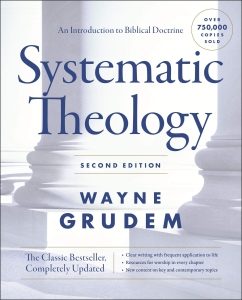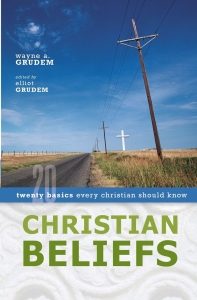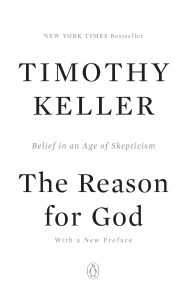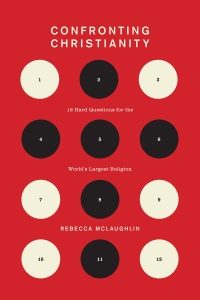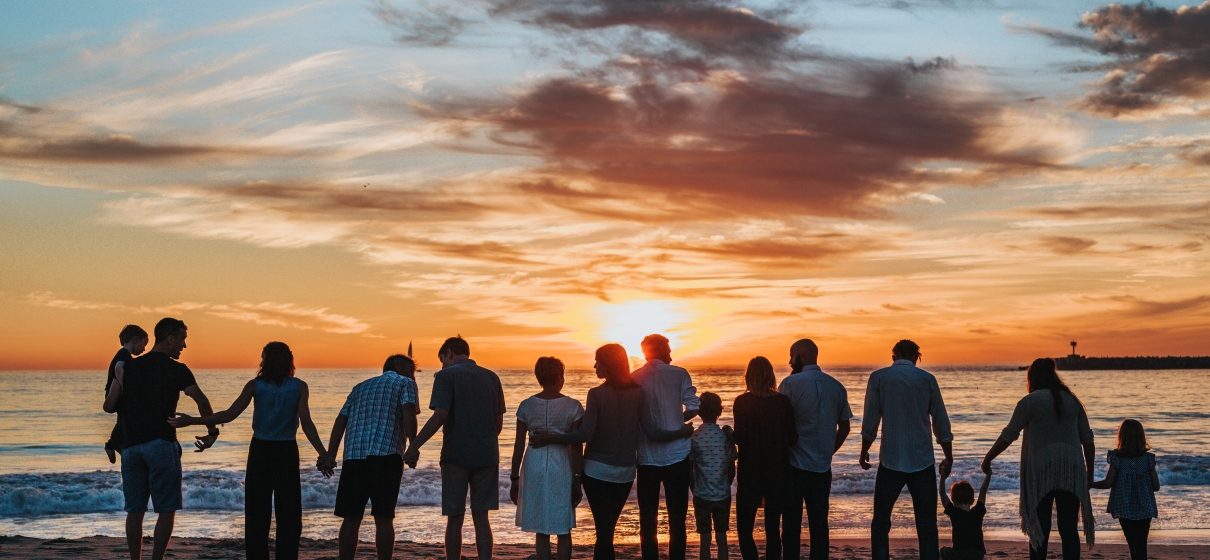3 Things You Must Know to Have a Thoughtful Life
When asked what the greatest commandment (i.e. the most important commandment) in the Old Testament law was, Jesus said to love God with all your heart, soul, and mind and to love your neighbor as yourself.
All the laws of the Old Testament essentially boil down to these two things: love God and love others.
“Teacher, which is the great commandment in the Law?” And he said to him, “You shall love the Lord your God with all your heart and with all your soul and with all your mind. This is the great and first commandment. And a second is like it: You shall love your neighbor as yourself.”
— Matthew 22:36-39
We are called to love God with everything, including our mind.
But how can we love God like that?
How do we live a thoughtful life?
Here are 3 things you must know and a few resources to help you learn more.
1. Know Who You Believe In
You have to first know God as he has revealed himself in the Bible. One of the charges against many Christians today is that they simply don’t know what the Bible says. They might know a few passages because they appear on social media posts with pretty backgrounds or coffee mugs, or because those are the verses they memorized as children. But, it seems, the Christian tradition of reading and knowing the Bible is not as strong as it once was.
We believe the Bible is God’s word and that it was written by human authors, under the supernatural guidance and inspiration of the Holy Spirit. Christians have always affirmed that it is the supreme source of truth for their beliefs and living.
But the only way to discover and understand the truths God reveals in the Bible is to read it for yourself.
And if you want some added help understanding things, get an ESV Study Bible or take our How to Study the Bible class in the fall.
Better yet, don’t do it alone. Join a small group to read, discuss, and apply God’s word in community.
To love God with your mind, you have to know God as he’s revealed himself in Scripture.
2. Know What You Believe In
You have to know what you believe and the core beliefs that Christians throughout history have stacked hands on. Studying theology can help you do that.
We’ve also posted the essential beliefs of our church on our website. Frankly, they are pretty generic essential beliefs similar to what you’d find on many church websites.
But know that those generic–sounding beliefs you see on church websites have been carefully crafted, formed by Scripture, and debated at different points throughout the history of the church.
We don’t take them for granted and neither should you.
To learn more, here are two great resources to get you started:
3. Know Why you Believe In It
You have to know why you believe what you believe, and, at least to some degree, be able to explain and defend what you believe. There’s actually a name for the defense of the Christian faith: apologetics.
That doesn’t mean you have to be one of those debaters who like to argue and discuss and push back. Some people are wired that way and some people aren’t. But like Peter says in 1 Peter 3:15, “But in your hearts honor Christ the Lord as holy, always being prepared to make a defense to anyone who asks you for a reason for the hope that is in you; yet do it with gentleness and respect.”
Know what you believe—the hope that is in you. And know why you believe it so that you can explain it to someone else who asks why you have that hope, and why you believe what you believe.
Be prepared to address objections or concerns people might have. People have questions. You’ve probably asked some of them, even if you’re settled in your belief:
- How could a good God allow suffering?
- How can a loving God send people to hell?
- Hasn’t science disproven Christianity?
- How can you say there’s only one true faith?
- Doesn’t Christianity denigrate women? And condone slavery?
Fortunately, there are good answers to these questions. Christians have applied their minds to the study of Scripture for hundreds of years to come up with satisfying, God-honoring answers to these questions. So do the work to know what those answers are.
Here are two great resources to get you started on studying apologetics:
While Christianity is very much tied to our hearts, it requires us to use our wits, our reason, and the entirety of our minds to truly follow Christ.
Let me encourage you, don’t check your brain at the door.
Dive in, learn, and use your knowledge and reason together with your feelings and faith. And as you do, may you, “Love the Lord your God with all your heart and with all your soul and with all your mind.”


